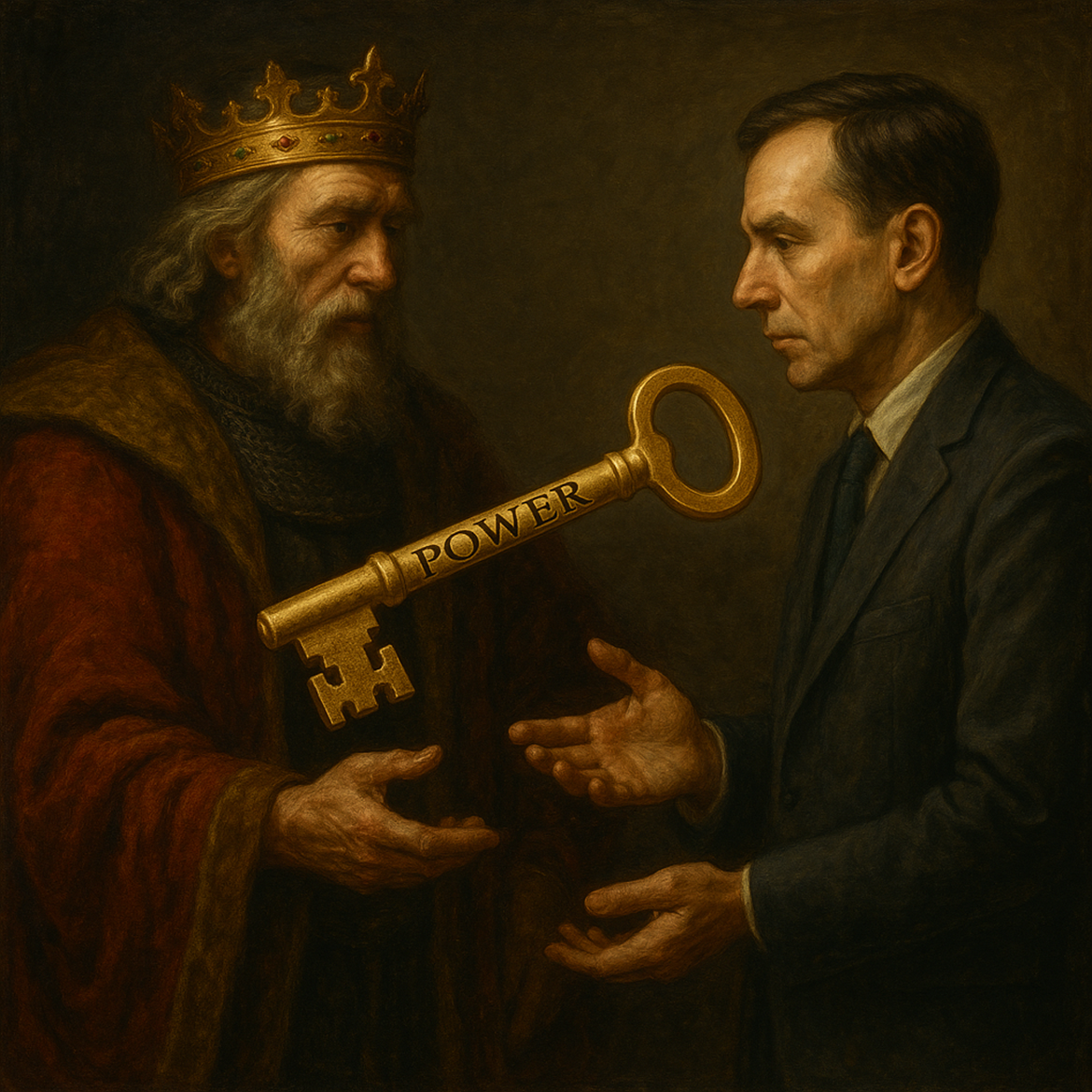The Invisible Rulers
Kings and queens once ruled with absolute power. Their word was law, and their decisions shaped nations. Today, monarchs are mostly figureheads, but power hasn’t disappeared—it’s just changed hands. A new class of rulers has emerged, not by birthright or election, but through paperwork and titles. These are the bureaucrats, the unelected officials who quietly pull the strings behind the scenes.
Think about it: Who really decides what laws mean? Who enforces rules that were never voted on? The answer isn’t presidents or prime ministers—it’s the people buried in government offices, writing regulations that affect millions. They don’t wear crowns, but their influence is just as real.
The Rise of the Paperwork Kings
Democracy was supposed to put power in the hands of the people. Citizens vote, leaders listen, and everyone gets a fair say. At least, that’s the idea. In reality, elected officials come and go, but the bureaucrats stay forever. They outlast presidents, prime ministers, and parliaments. While politicians argue in front of cameras, these officials work in the background, shaping policy without public scrutiny.
Take the European Union, for example. The European Commission, a group of unelected officials, proposes nearly all EU laws. National leaders debate them, but the framework is already set. Similar systems exist everywhere. In the U.S., federal agencies write thousands of rules each year—rules that carry the force of law but never passed through Congress.
The Illusion of Control
Politicians love to promise change. “Vote for me, and things will be different!” But once in office, they often find their hands tied. Why? Because dismantling existing systems is nearly impossible. Bureaucracies grow like weeds, spreading roots deep into government. Even when new leaders take charge, the machine keeps running as before.
Consider how hard it is to fire a government employee in most countries. Unlike private-sector jobs, where performance matters, bureaucrats enjoy near-total job security. This means they can ignore political winds and focus on long-term agendas—agendas no one voted for.
The Power of the Pen
Laws passed by legislatures are often vague by design. They set broad goals, like “clean up the environment” or “improve public safety.” But the details—the actual rules that dictate how businesses operate, what citizens can and can’t do—are written by bureaucrats.
These rules aren’t minor. They determine what you can build on your property, what medicines you can take, and how much money you owe in taxes. And once these rules are in place, overturning them requires navigating a maze of legal challenges and administrative hurdles. In other words, the system protects itself.
The New Nobility
Old-world aristocrats had titles like “duke” or “baron.” Today’s elite have titles like “commissioner” or “director.” They don’t live in castles, but they do enjoy perks most people never see: generous pensions, expense accounts, and immunity from the consequences of their decisions.
When a business fails, its owners face bankruptcy. When a government program fails, its administrators get more funding. There’s no real accountability. The people in charge rarely lose their jobs, even when their policies lead to disaster.
Breaking the Spell
So what can be done? First, recognize the problem. Most people assume elected leaders call the shots. They don’t. Real power lies with the people who control information, budgets, and regulations.
Second, demand transparency. Many bureaucracies operate in secrecy, hiding their decision-making behind layers of procedure. Sunlight is the best disinfectant—forcing these systems into the open would curb their worst abuses.
Finally, simplify. The more complex a government becomes, the harder it is to control. Reducing red tape and slashing unnecessary agencies would weaken the grip of the new aristocracy.
The Choice Ahead
History shows that power always finds a way to concentrate. Kings ruled by divine right. Today’s rulers claim authority through policy papers and committee meetings. The methods have changed, but the outcome is the same—a small group making decisions for everyone else.
The question isn’t whether bureaucrats have power. It’s whether we’re okay with that. Because if we don’t push back now, the new aristocracy will only grow stronger. And unlike kings, they don’t even have to pretend to care about the people they rule.

Sorry, the comment form is closed at this time.